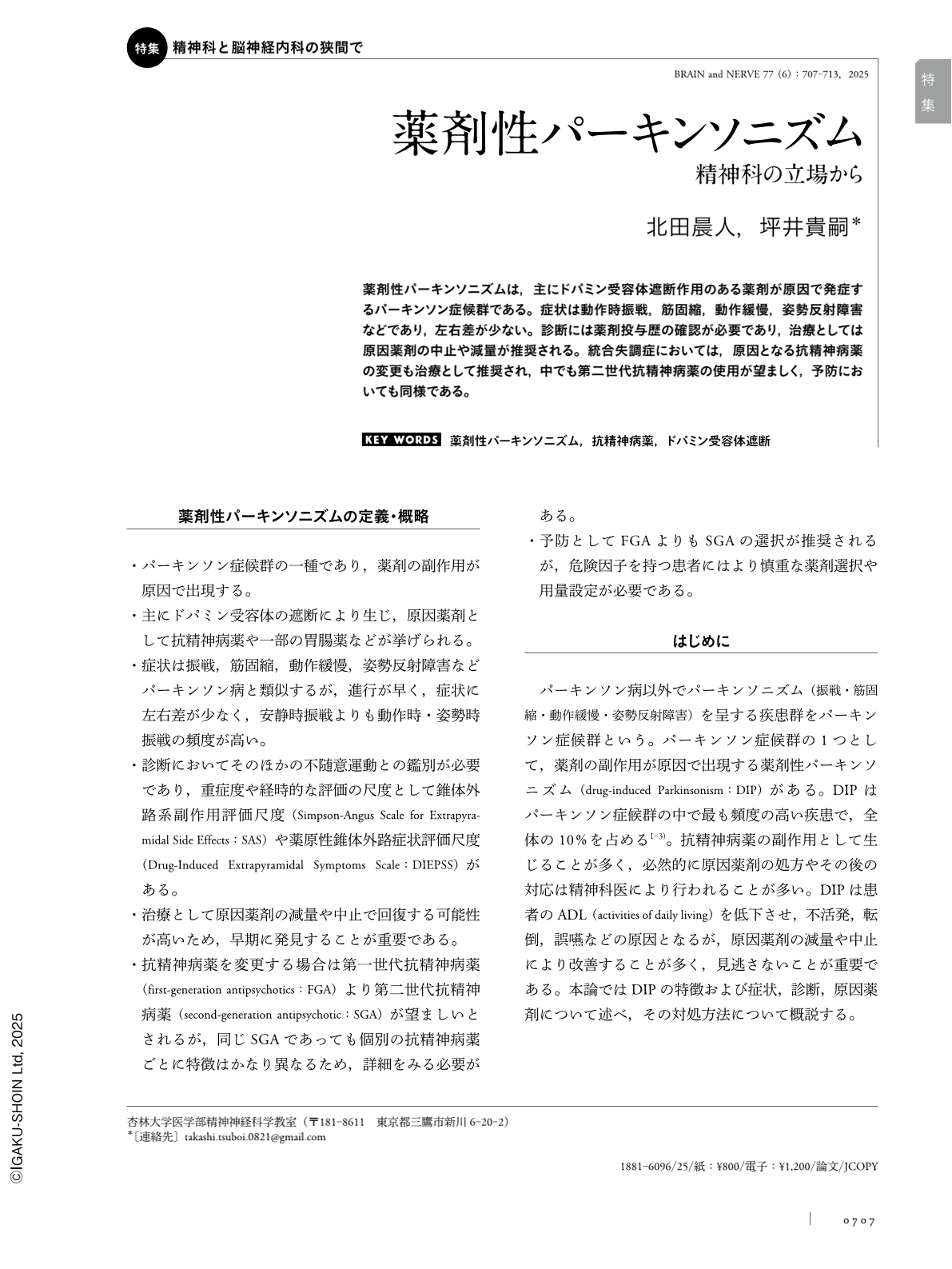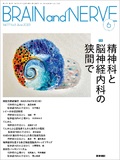Japanese
English
- 有料閲覧
- Abstract 文献概要
- 1ページ目 Look Inside
- 参考文献 Reference
薬剤性パーキンソニズムは,主にドパミン受容体遮断作用のある薬剤が原因で発症するパーキンソン症候群である。症状は動作時振戦,筋固縮,動作緩慢,姿勢反射障害などであり,左右差が少ない。診断には薬剤投与歴の確認が必要であり,治療としては原因薬剤の中止や減量が推奨される。統合失調症においては,原因となる抗精神病薬の変更も治療として推奨され,中でも第二世代抗精神病薬の使用が望ましく,予防においても同様である。
Abstract
Drug-induced parkinsonism (DIP) refers to a parkinsonian syndrome resulting from the use of drugs, such as antipsychotics, whose primary mechanism of action is dopamine receptor blockade. The clinical features of DIP typically include action tremors, muscular stiffness, slowness of movement, and postural instability, often with minimal lateral asymmetry. The diagnosis of DIP requires a thorough review of the patient's medication history and the exclusion of differential disorders, and the recommended management is discontinuation or dose reduction of the potentially causative agent. In patients with schizophrenia, switching the offending antipsychotic to another, preferably second-generation antipsychotic agent, is also recommended. This treatment strategy can be adapted to prevent DIP as well.

Copyright © 2025, Igaku-Shoin Ltd. All rights reserved.


